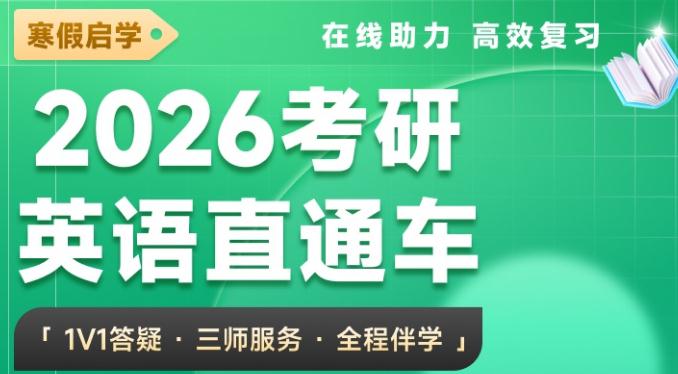1998-2022 ChinaKaoyan.com Network Studio. All Rights Reserved. 滬ICP備12018245號
北京航空航天大學經管學院管理科學與工程導師介紹:王晶
導師詳細信息
姓名:王晶
性別:男
出生年份:1960
職稱:教授
院系:經濟管理學院
首次聘任導師時間:2006
現聘任導師一級學科名稱:管理科學與工程
現聘任導師二級學科名稱:管理科學與工程
聘任在第二學科培養博士生專業名稱:無
聘任在自主設置學科培養博士生專業名稱:無
主要研究方向及特色:生產計劃與控制、物流與供應鏈管理、定制化生產管理、服務創新與管理、精益生產方式等
電子信箱:jim08@buaa.edu.cn
辦公電話:82316151
辦公地點:北航新主樓A座1146
通信地址:北京航空航天大學經濟管理學院
個人簡介:
主要經歷:
1979年北京航空學院5系本科生。1981年教育部公派留學,在日本廣島大學學習9年,1990年獲系統工程學博士學位。其后在日本日新制鋼株式會社生產管理部、長壽工業株式會社制造部和集團總部工作6年。從事過生產計劃與調度、鋼材物流系統分析與優化、工作分析與設計、國際貿易等工作。1997年回國工作,任北京機械工業學院工商分院副教授。1998年5月任北京航空航天大學經濟管理學院副教授,2004年7月任北京航空航天大學經濟管理學院教授。博士生導師。
主要研究領域:
生產運作流程分析與優化、生產計劃與控制、物流與供應鏈管理、服務管理與服務創新、精益生產方式、定制化生產管理、員工績效與薪酬管理等。近年來發表相關學術論文80余篇,其中6篇被SCI檢索,25篇被EI檢索,12篇被ISTP檢索。近期的研究興趣主要是供應鏈系統特性分析、服務管理與服務創新和定制化生產管理。
擔任北航經管學院副院長生產與運作管理研究中心主任
承擔的國家自然科學基金項目:
國家自然科學基金創新群體成員70521001基于行為的若干社會經濟復雜系統建模與管理(項目負責人:黃海軍教授),承擔生產行為的理論與方法研究課題(已完成)。
主持國家自然科學基金項目,基于消除浪費的生產管理流程系統性優化理論與方法研究,2005年已完成,70272020
主持國家自然科學基金項目,基于控制工程理論與信息論的供應鏈信息管理研究,2008年已完成,70572014
主持國家自然科學基金項目,基于需求信息管理的供應鏈系統穩定性研究,2011年已完成,70872009
主持國家自然科學基金項目,基于參與和體驗的定制化生產過程價值形成與傳遞機制研究,正在進行,71172016
主持國家自然科學基金重點項目,大型復雜產品研制過程運作管理,正在進行,71332003
研究開發項目:
航空工業總公司613所生產作業計劃決策支持系統開發,2003年完成
中環水務建設有限公司發展戰略及薪酬體系設計,2005年完成
勝利油田青年班組長職業生涯發展模型研究,2009年完成
生產執行系統升級改造管理流程優化研究,2010年完成
中國商飛公司發展戰略和規劃的分解實施方法研究,2011年完成
講授課程:
生產與運作管理、供應鏈管理、日本企業文化。
北航校級研究生精品課《生產與運作管理》課程負責人,獲得北航校級教學成果一等獎。
出版教材與專著:
王晶編著.生產與運作管理核心理論及習題集(第二版).機械工業出版社,2013.11
王晶(參編,張群主編).生產與運作管理(第三版).機械工業出版社,2013年11月
王晶,席陽,榮超著.企業消除浪費的理論與實踐.社會科學文獻出版社,2009年12月
王晶,王璕,賈經冬著.供應鏈信息管理.科學出版社,2010年12月
招收碩士和博士研究生:
2001年以來已經畢業學術型碩士研究生23名,其中7名考取博士研究生,已有3名獲得博士學位。一位博士畢業生和一位碩士畢業生獲得國家獎學金。
招收企業管理方向和管理科學與工程方向的學術型碩士研究生。歡迎理工科專業的同學跨專業報考。
招收具有工程類本科和管理類碩士研究生背景的博士研究生。報考前請提供詳細的教育和科研背景資料。不接受在職博士生。
近期主要期刊論文目錄:
[1]王晶,賈經冬,宮兆波.顧客參與生產過程與大規模定制.北京航空航天大學學報(社科版),2002,15(4),pp38-42.
[2]王晶,齊京華,劉曉宇.生產系統柔性的度量方法研究.管理工程學報,2003,17(3),pp63-66.
[3]Chao Rong, K. Takahashi, Jing Wang. Enterprise waste evaluation using the analytic hierarchy process and fuzzy set theory. Production planning and control, 2003, Vol.14, No.1, pp90-103. (SCI檢索IDS:671DV)(EI:03457715019)
[4]王晶,席陽,李鐵克.基于體驗經濟與顧客參與的大規模訂制模式.北京航空航天大學學報(社科版),2004,17(1),pp45-49.
[5]王晶,賈經冬,王增貴,周泓.生產現場管理綜合評價方法研究及軟件開發.工業工程與管理,2004,9(3),pp25-31.
[6]王晶,賈經冬,周泓.不確定因素對供應鏈信息失真影響的研究.系統工程,2004增刊,pp253-259.
[7]Jing Wang, Jingdong Jia, K Takahashi. A Study on the Impact of Uncertain Factors on Information Distortion in Supply Chains. Production Planning and Control, 2005, 16(1), pp2-11. (SCI檢索IDS:891LV)(EI:05489503969)
[8]王晶,方建奇,仇晨,張在曉.連鎖經營企業集中訂貨與支援調撥策略及模型.工業工程,2005,8(2),pp11-16.
[9]王晶,席陽,韓勇.重點型號工程實施并行工程的最優評審點設計.北京航空航天大學學報(自然科學版),2005,31(5),pp556-560.(EI檢索)
[10]王晶,孫海燕,李伊嵐.供應鏈中的信息失真及其弱化策略.北京航空航天大學學報(自然科學版),2006.32(12):1181-1184.(EI檢索)
[11]王晶,李伊嵐,孫海燕.供應鏈信息管理研究現狀及展望.管理學報,2007,4(2),235-242.
[12]王晶,李宇翔,王璕.供應鏈需求信息的信息增量與信息價值.北京航空航天大學學報(自然科學版),2007,33(12),1452-1456.(EI檢索)
[13]王晶,于開宇,趙俊.回購條件下的圖書批發企業優化定價策略研究.系統工程理論與實踐,2007,27(12),68-75.(EI檢索)
[14]宋慶美,王晶,程麗娟.時尚電子產品顧客滿意度的動態特性.工業工程,2008,11(3),pp27-31.
[15]王晶,王璕,李宇翔.供應鏈的信息增量與信息價值研究.工業工程,2008,11(2),pp6-11.
[16]王晶,程麗娟,宋慶美.基于顧客參與的定制滿意度研究.管理學報,2008,5(3),pp391-395.
[17]王晶,唐玲,張在曉,方建奇.供應商共享POS信息時的信息挖掘策略與方法.工業工程,2008,11(4),pp38-44.
[18]王晶,唐玲,王璕.需求信息共享策略對供應鏈系統穩定性的影響.北京航空航天大學學報(自然科學版),2009,35(8),pp1009-1012.(EI檢索)
[19]王晶,宋慶美,程麗娟.基于效用和成本的顧客參與研究.兵工學報,2009.11增刊,pp154-160.(EI檢索)
[20]Jing Wang,Longgang Xu, Xun Wang. Research on Natural Frequency and Resonance in Supply Chain Ordering System. Asia-Pacific Journal of Industrial Management, 2009, 2(1), pp15-22.
[21]王晶,田玲,王璕.信息更新頻率對供應鏈穩定性的影響.系統工程,2010(3): 33-39.
[22]Jing Wang, Ling Tang. The Impact of Demand Information Sharing on the Supply Chain Stability. in editor Pengzhong Li, SUPPLY CHAIN MANAGEMENT. INTECH OPEN ACCESS PUBLISHER, 2011, ISBN 978-953-307-184-8, 389-414. Available from:
http://www.intechopen.com/articles/show/title/the-impact-of-demand-information-sharing-on-the-supply-chain-stability
[23]Jing Wang, Jun Zhao, Xun Wang, Optimum policy in Hybrid Manufacturing/Remanufacturing system. Computer & Industrial Engineering. 60(2011). 411-419. ( SCI, EI 檢索)
[24]王晶,呂國力,賈經冬.基于控制論的3種供應鏈動態特性比較. 北京航空航天大學學報(自然科學版). 2011, 37(3), 337-343. (EI 檢索)
[25]王晶,楊歡,韓偉偉.需求信息共享供應鏈系統穩定域內的優化[J].北京航空航天大學學報,2012,38(5):605-613.
[26]Yegui Xiao and Jing Wang. A New Feedforward Hybrid Active Noise Control System. IEEE SIGNAL PROCESSING LETTERS.2011, 18(2), 591-594. (SCI, EI 檢索).
[27]王晶,王尋.受約束供應鏈模型的復雜動力學行為[J].系統工程理論與實踐, 2012, 32(4):746-751.
[28]賈經冬,王晶.不同信息透明度的非線性再制造供應鏈動態行為[J].系統工程, 2012, 30(4):81-87.
[29]Jing Wang, Weiwei Han, Huan Yang. The Study of Optimization in the Stability Region of Demand Information Sharing Supply Chain System[J]. Asia-Pacific Journal of Industrial Management, 2012, 3(1):46-56.
[30]潘海俠,王晶.服務系統中多階段動態服務匹配模型及優化算法研究[J].工業工程, 2012, 15(5):112-117.
[31]王晶,賈國柱,黃海軍,周泓,高遠洋.研究生“生產與運作管理”研究型課程設計與實施[J].學位與研究生教育, 2012, 6:35-39.
[32]Xun Wang, Jing Wang. Optimal Forecasting Technique in Reducing Supply Chain Amplification[J]. Applied Mechanics and Materials, 2012, 235, 362-367.
[33]Xun Wang, Stephen M. Disney, Jing Wang. Exploring the Oscillatory Dynamics of a Forbidden Returns Inventory System [J]. International Journal of Production Economics. 已接收. (SCI源期刊,doi: 10.1016/j.ijpe.2012.08.013)
[34]Xun Wang, Stephen M. Disney, Jing Wang. Stability Analysis of Constrained Inventory Systems with Transportation Delay [J]. European Journal of Operational Research, 2012, 223(1): 86-95. (SCI檢索)
來源未注明“中國考研網\考研信息網”的資訊、文章等均為轉載,本網站轉載出于傳遞更多信息之目的,并不意味著贊同其觀點或證實其內容的真實性,如涉及版權問題,請聯系本站管理員予以更改或刪除。如其他媒體、網站或個人從本網站下載使用,必須保留本網站注明的"稿件來源",并自負版權等法律責任。
來源注明“中國考研網”的文章,若需轉載請聯系管理員獲得相應許可。
聯系方式:chinakaoyankefu@163.com
- 2026考研英語全程班 寒假班
- 權威高配師資親授技巧,教研千錘百煉科學提分。直錄播課相結合精講互動二合一,專業團隊精細化作文批改。講練結合,隨學隨練穩步提升。支持試聽~
- 主講團隊:王江濤、譚劍波、董仲蠡、許聰杰、陳志超、潘赟、鄭艷彤、易熙人

掃碼關注
了解考研最新消息












